“Life permits a beautiful and unfortunate girl to go to the gallows– Unless art, for once, can bring its technique to bear!”
|
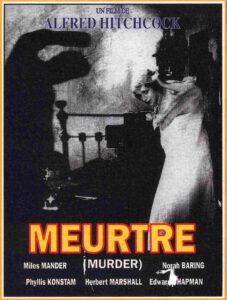
Synopsis:
After helping to convict an aspiring actress (Norah Baring) of murder, well-known actor Sir John Menier (Herbert Marshall) becomes convinced of her innocence, and tries to hunt down the true culprit.
|
|
Genres, Themes, Actors, and Directors:
- Actors and Actresses
- Amateur Sleuths
- Courtroom Drama
- Falsely Accused
- Herbert Marshall Films
- Hitchcock Films
- Murder Mystery
Response to Peary’s Review:
It’s difficult to gauge Peary’s response to this film: according to his review, he likes many of the scenes in the beginning and end, but insists that the “middle section” is “terribly slow”, and that the entire film — which is “about the theater” — is, “not surprisingly,” “too theatrical.” I disagree. Hitchcock is able to turn even the stagiest of interactions into interesting cinematic moments, and his use of sound, editing, lighting, and camera movement all provide early evidence of his brilliance. While this isn’t one of Hitchcock’s true masterpieces, it’s definitely an indication of what’s to come.
Redeeming Qualities and Moments:
- Marshall being pressured by his fellow jury members (a literal chorus of voices) into convicting Baring
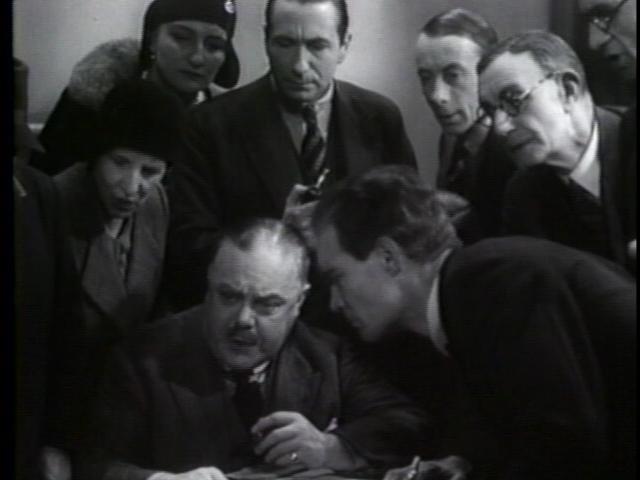
- Detectives interrogating a troupe of actors as they enter and exit the stage
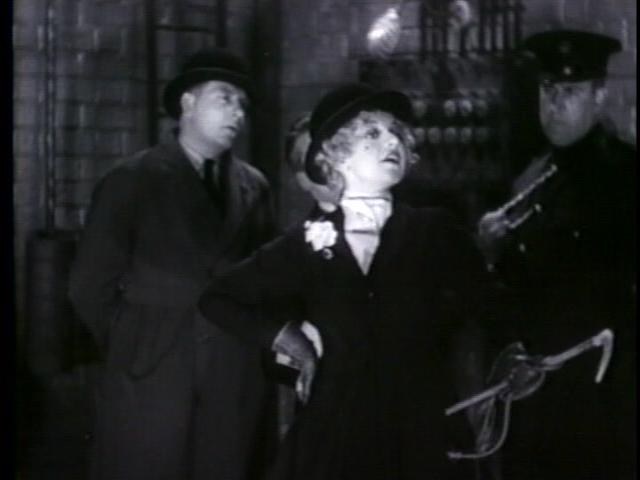
- Creative use of sound — for instance, in the scene where Baring’s conviction is being read by the judge, but the camera remains in the (nearly) empty jury room

- Effective use of humor in a murder mystery

- A handsome young Herbert Marshall
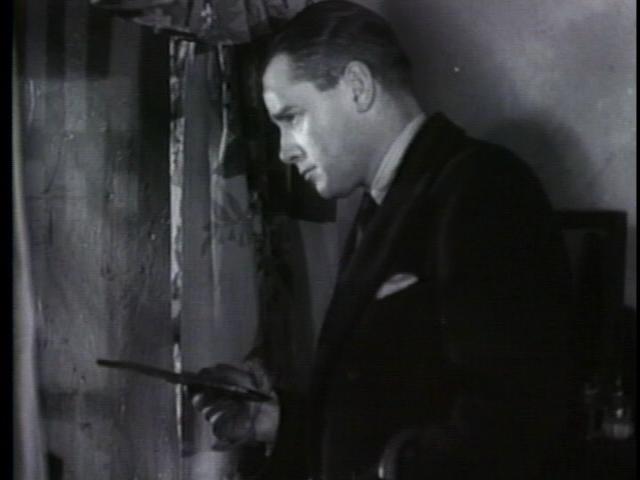
- Dramatic use of light and shadows
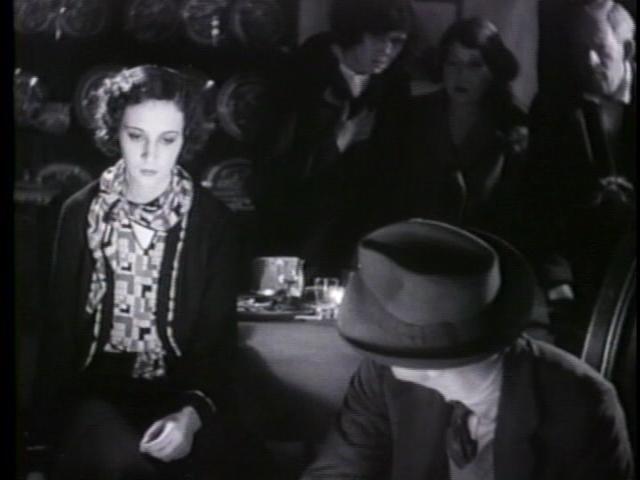
- Some truly haunting visuals
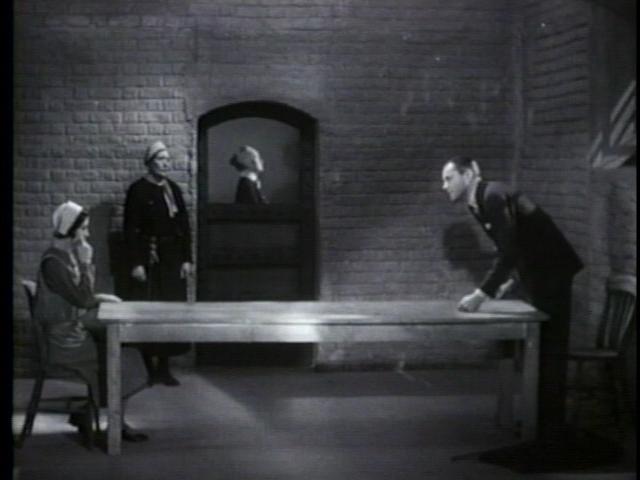
Must See?
Yes. As one of Hitchcock’s first “talkies”, all film fanatics should be familiar with this movie.
Categories
- Historically Relevant
- Important Director
Links:
|
One thought on “Murder! (1930)”
A once-must, at least – a few awkward choices and some understandably tinny audio notwithstanding.
As noted, “it’s definitely an indication of what’s to come.” As well, it contains certain Hitchcock preoccupations; one being his belief that blackness of character often turns up in surprising places – one character is quoted as saying, “‘Friends?!’ I can tell you things about your friends that you don’t know.”
Peary’s complaint can be understood: one of the film’s truly memorable sequences comes early on, when actors are (however unlikely) questioned backstage during a performance. (I would love to know what the heck kind of play is being performed; with its farcical combination of society/police send-up, physical humor and transvestism, it seems as zany as something by Joe Orton.) There’s a liveliness here which subsequently segues to a fairly involving yet (what could be seen today as) a somewhat pedestrian story hinging on a murder conviction without actual inquest.
There’s also the subtle yet disturbing suggestion that homicidal tendencies can be rooted in what, at the time, was considered sexual aberration (though here it’s smoke-screened as something else).
cf: ‘Twelve Angry Men’, esp. for the long sequence in which juror Marshall attempts to resist casting the deciding vote.